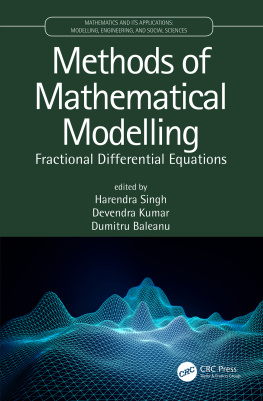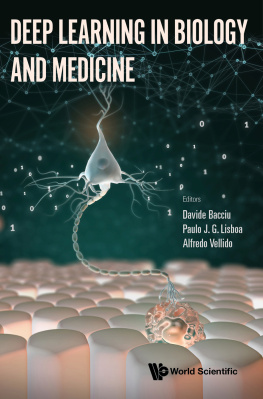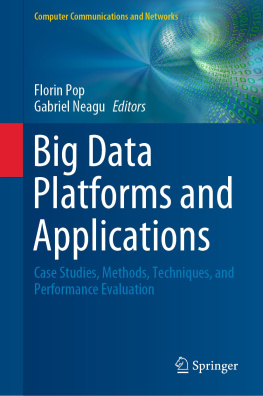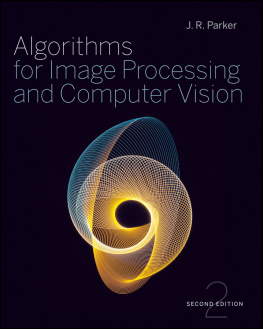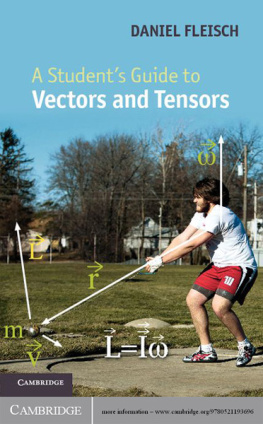Yipeng Liu (editor) - Tensors for Data Processing: Theory, Methods, and Applications
Here you can read online Yipeng Liu (editor) - Tensors for Data Processing: Theory, Methods, and Applications full text of the book (entire story) in english for free. Download pdf and epub, get meaning, cover and reviews about this ebook. year: 2021, publisher: Academic Press, genre: Home and family. Description of the work, (preface) as well as reviews are available. Best literature library LitArk.com created for fans of good reading and offers a wide selection of genres:
Romance novel
Science fiction
Adventure
Detective
Science
History
Home and family
Prose
Art
Politics
Computer
Non-fiction
Religion
Business
Children
Humor
Choose a favorite category and find really read worthwhile books. Enjoy immersion in the world of imagination, feel the emotions of the characters or learn something new for yourself, make an fascinating discovery.

- Book:Tensors for Data Processing: Theory, Methods, and Applications
- Author:
- Publisher:Academic Press
- Genre:
- Year:2021
- Rating:5 / 5
- Favourites:Add to favourites
- Your mark:
- 100
- 1
- 2
- 3
- 4
- 5
Tensors for Data Processing: Theory, Methods, and Applications: summary, description and annotation
We offer to read an annotation, description, summary or preface (depends on what the author of the book "Tensors for Data Processing: Theory, Methods, and Applications" wrote himself). If you haven't found the necessary information about the book — write in the comments, we will try to find it.
Tensors for Data Processing: Theory, Methods, and Applications — read online for free the complete book (whole text) full work
Below is the text of the book, divided by pages. System saving the place of the last page read, allows you to conveniently read the book "Tensors for Data Processing: Theory, Methods, and Applications" online for free, without having to search again every time where you left off. Put a bookmark, and you can go to the page where you finished reading at any time.
Font size:
Interval:
Bookmark:
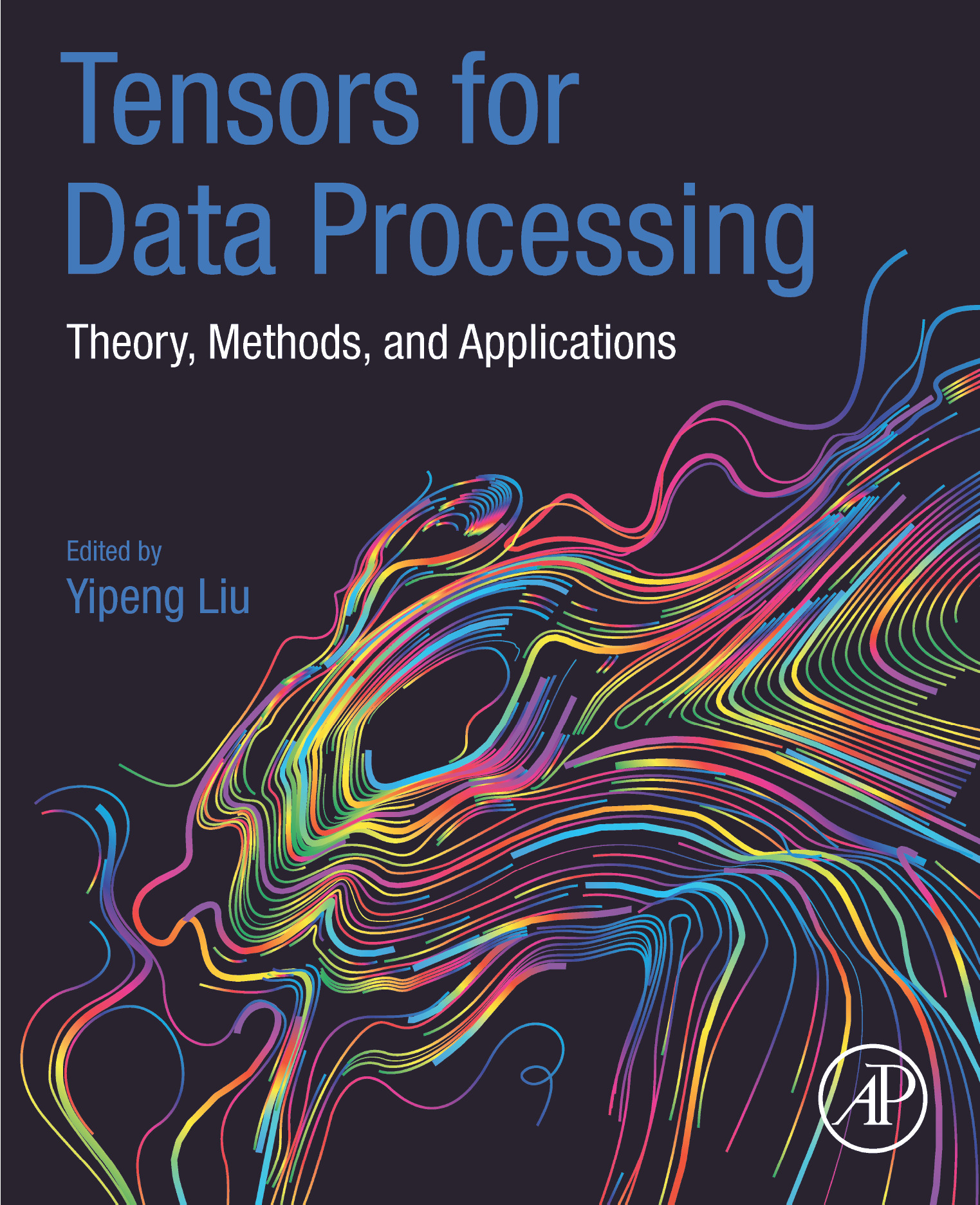
First edition
Yipeng Liu
School of Information and Communication Engineering, University of Electronic Science and Technology of China (UESTC), Chengdu, China

- Tables in Chapter 2
- Tables in Chapter 4
- Tables in Chapter 5
- Tables in Chapter 6
- Tables in Chapter 8
- Tables in Chapter 9
- Tables in Chapter 11
- Tables in Chapter 12
- Tables in Chapter 13
- Tables in Chapter 14
- Figures in Chapter 1
- Figures in Chapter 2
- Figures in Chapter 3
- Figures in Chapter 4
- Figures in Chapter 5
- Figures in Chapter 6
- Figures in Chapter 7
- Figures in Chapter 8
- Figures in Chapter 9
- Figures in Chapter 10
- Figures in Chapter 11
- Figures in Chapter 12
- Figures in Chapter 13
- Figures in Chapter 14
Academic Press is an imprint of Elsevier
125 London Wall, London EC2Y 5AS, United Kingdom
525 B Street, Suite 1650, San Diego, CA 92101, United States
50 Hampshire Street, 5th Floor, Cambridge, MA 02139, United States
The Boulevard, Langford Lane, Kidlington, Oxford OX5 1GB, United Kingdom
Copyright 2022 Elsevier Inc. All rights reserved.
MATLAB is a trademark of The MathWorks, Inc. and is used with permission.
The MathWorks does not warrant the accuracy of the text or exercises in this book.
This book's use or discussion of MATLAB software or related products does not constitute endorsement or sponsorship by The MathWorks of a particular pedagogical approach or particular use of the MATLAB software.
No part of this publication may be reproduced or transmitted in any form or by any means, electronic or mechanical, including photocopying, recording, or any information storage and retrieval system, without permission in writing from the publisher. Details on how to seek permission, further information about the Publisher's permissions policies and our arrangements with organizations such as the Copyright Clearance Center and the Copyright Licensing Agency, can be found at our website: www.elsevier.com/permissions.
This book and the individual contributions contained in it are protected under copyright by the Publisher (other than as may be noted herein).
Notices
Knowledge and best practice in this field are constantly changing. As new research and experience broaden our understanding, changes in research methods, professional practices, or medical treatment may become necessary.
Practitioners and researchers must always rely on their own experience and knowledge in evaluating and using any information, methods, compounds, or experiments described herein. In using such information or methods they should be mindful of their own safety and the safety of others, including parties for whom they have a professional responsibility.
To the fullest extent of the law, neither the Publisher nor the authors, contributors, or editors, assume any liability for any injury and/or damage to persons or property as a matter of products liability, negligence or otherwise, or from any use or operation of any methods, products, instructions, or ideas contained in the material herein.
Library of Congress Cataloging-in-Publication Data
A catalog record for this book is available from the Library of Congress
British Library Cataloguing-in-Publication Data
A catalogue record for this book is available from the British Library
ISBN: 978-0-12-824447-0
For information on all Academic Press publications visit our website at https://www.elsevier.com/books-and-journals
Publisher: Mara Conner
Acquisitions Editor: Tim Pitts
Editorial Project Manager: Charlotte Rowley
Production Project Manager: Prem Kumar Kaliamoorthi
Designer: Miles Hitchen
Typeset by VTeX

Kim Batselier Delft Center for Systems and Control, Delft University of Technology, Delft, The Netherlands
Yingyue Bi School of Information and Communication Engineering, University of Electronic Science and Technology of China (UESTC), Chengdu, China
Jrmie Boulanger CRIStAL, Universit de Lille, Villeneuve d'Ascq, France
Rmy Boyer CRIStAL, Universit de Lille, Villeneuve d'Ascq, France
Cesar F. Caiafa
Instituto Argentino de Radioastronoma CCT La Plata, CONICET / CIC-PBA / UNLP, Villa Elisa, Argentina
RIKEN Center for Advanced Intelligence Project, Tokyo, Japan
Jocelyn Chanussot LJK, CNRS, Grenoble INP, Inria, Universit Grenoble, Alpes, Grenoble, France
Christos Chatzichristos KU Leuven, Department of Electrical Engineering (ESAT), STADIUS Center for Dynamical Systems, Signal Processing and Data Analytics, Leuven, Belgium
Cong Chen Department of Electrical and Electronic Engineering, The University of Hong Kong, Pokfulam Road, Hong Kong
Nadav Cohen School of Computer Science, Hebrew University of Jerusalem, Jerusalem, Israel
Xudong Cui School of Mathematics, Tianjin University, Tianjin, China
Andr L.F. de Almeida Department of Teleinformatics Engineering, Federal University of Fortaleza, Fortaleza, Brazil
Aybke Erol Circuits and Systems, Department of Microelectronics, Delft University of Technology, Delft, The Netherlands
Yiming Fang Department of Computer Science, Columbia University, New York, NY, United States
Grard Favier Laboratoire I3S, Universit Cte d'Azur, CNRS, Sophia Antipolis, France
Borbla Hunyadi Circuits and Systems, Department of Microelectronics, Delft University of Technology, Delft, The Netherlands
Pratik Jawanpuria Microsoft, Hyderabad, India
Tai-Xiang Jiang School of Economic Information Engineering, Southwestern University of Finance and Economics, Chengdu, Sichuan, China
Paris A. Karakasis School of Electrical and Computer Engineering, Technical University of Crete, Chania, Greece
Ouafae Karmouda CRIStAL, Universit de Lille, Villeneuve d'Ascq, France
Hiroyuki Kasai Waseda University, Tokyo, Japan
Eleftherios Kofidis Dept. of Statistics and Insurance Science, University of Piraeus, Piraeus, Greece
Christos Kolomvakis School of Electrical and Computer Engineering, Technical University of Crete, Chania, Greece
Yoav Levine School of Computer Science, Hebrew University of Jerusalem, Jerusalem, Israel
Zechu Li Department of Computer Science, Columbia University, New York, NY, United States
Athanasios P. Liavas School of Electrical and Computer Engineering, Technical University of Crete, Chania, Greece
Zhouchen Lin Key Lab. of Machine Perception, School of EECS, Peking University, Beijing, China
Xiao-Yang Liu
Department of Computer Science and Engineering, Shanghai Jiao Tong University, Shanghai, China
Department of Electrical Engineering, Columbia University, New York, NY, United States
Yipeng Liu School of Information and Communication Engineering, University of Electronic Science and Technology of China (UESTC), Chengdu, China
Font size:
Interval:
Bookmark:
Similar books «Tensors for Data Processing: Theory, Methods, and Applications»
Look at similar books to Tensors for Data Processing: Theory, Methods, and Applications. We have selected literature similar in name and meaning in the hope of providing readers with more options to find new, interesting, not yet read works.
Discussion, reviews of the book Tensors for Data Processing: Theory, Methods, and Applications and just readers' own opinions. Leave your comments, write what you think about the work, its meaning or the main characters. Specify what exactly you liked and what you didn't like, and why you think so.

